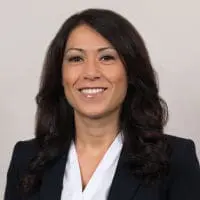Publication
SBA Issues Second Interim Final Rule for Paycheck Protection Program Loans
By Eric Kintner and Soheila Shahidi
On April 15, the Small Business Administration (SBA) issued a new supplement to the first Interim Final Rule (IFR) for the Paycheck Protection Program (PPP) that provided some important clarifications regarding eligibility of partners and self-employed individuals for the PPP loans, businesses with gambling revenues and PPP loans made to PPP lender associates. Although the original $350 billion allocated under the CARES Act for the PPP loans have now been exhausted, news reports suggest that Congress is working on a new package to make additional funds available for PPP loans.
Eligibility of Self-Employed Individuals
The IFR made clear that self-employed individuals are eligible to receive a PPP loan if (i) they were in operation on February 15, 2020; (ii) they are an individual with self-employment income (e.g., sole proprietor or independent contractor); (iii) their principal place of residence is in the United States; and (iv) they filed or will file a Form 1040 Schedule C for 2019. Given that the CARES Act makes businesses in operation on February 15, 2020 eligible for the PPP loan while self-employed individuals will need to rely on their 2019 Form 1040 to apply for the loan, the SBA intends to issue additional guidance with respect to self-employed individuals who were not in operation in 2019, but were in operation on February 15, 2020.
Eligibility of Partners
A partner in a partnership may not submit a separate PPP loan application as a self-employed individual. Instead, the partnership can include the self-employment income of general active partners as payroll cost up to $100,000 annualized on a PPP loan application.
Maximum Amount of the Loan
The CARES Act limited the amount of the loan to the lesser of $10 million or an amount equal to 2.5 times the average monthly payroll costs. The IFR provided additional guidance regarding the calculation of the 2.5 times average monthly payroll costs depending on whether the self-employed individual has employees. If the self-employed individual has no employees, the calculation is based on the amount of net profits on 2019 Form 1040, Schedule C, Line 31, up to $100,000 per year. However, if the self-employed individual has employees, in addition to the net profits, other amounts are included in the calculation, such as wages and tips, health insurance, retirement contributions, etc.
Uses of the PPP Loan Proceeds
The PPP loan proceeds could be used for the type of “allowable uses” for which the self-employed individual made expenditures in 2019. Allowable uses include: owner compensation; payroll costs; other expenses to the extent they were deductible on 2019 Form 1040 Schedule C (e.g., mortgage interest on business related mortgage obligations, rent, and utility payments, etc.); interest payments on debt obligations incurred before February 15, 2020 (this will not be eligible for loan forgiveness); or refinancing of certain SBA Economic Injury Disaster Loans. The SBA intends to issue additional guidance for self-employed individuals that were not in operation in 2019, but were in operation on February 15, 2020.
75/25 Rule for Use of PPP Loan Proceeds Applies to Self-Employed Individuals
At least 75 percent of the PPP loan proceeds must be used for payroll costs.
PPP Loan Forgiveness
A borrower would be eligible for loan forgiveness on the following items: (a) an amount equal to the amount spent during an eight-week period beginning with the origination date of the loan (“Covered Period”) on payroll costs of up to $100,000 per year; (b) the amount spent during the Covered Period on owner compensation of up to $100,000 per year excluding any qualified sick leave or qualified family leave for which a credit was obtained under Families First Coronavirus Response Act; and (c) the following expenses to the extent they are deductible on Form 1040 Schedule C: interest payment on certain mortgage incurred prior to February 15, 2020; payment of rent on any lease in force prior to February 15, 2020; and payment on any utility for which service began before February 15.
Eligible Businesses Owned by Certain Directors or Owners of PPP Lenders
The SBA determined that PPP lenders may provide PPP loans to an otherwise eligible small business that happens to be owned in whole or in part by an outside director or holder of less than 30% equity interest in the PPP lender. However, the SBA made clear that PPP lenders are prohibited from providing PPP loans to that eligible business if such outside director or owner is also an officer or key employee of the PPP lender. Officers and key employees of a PPP lender may obtain a PPP loan from a different lender. The SBA noted that the PPP lender must not show any favoritism in processing time or prioritization of the director’s or equity holder’s PPP application. In addition, lenders would still need to comply with any applicable state and federal regulations concerning loans to associates as well as their own internal policies.
Eligible Businesses with Gaming Revenue
The SBA made clear that a business that is otherwise eligible for a PPP loan is not rendered ineligible due to its receipt of legal gaming revenues if the business satisfies the current exemption under 13 CFR 121.110(g) (i.e., 1/3 or less of the business’ gross annual revenue comes from legal gambling activities), or if both of the following two conditions are satisfied: (a) the business’s legal gaming revenue (net of payouts but not other expenses) did not exceed $1 million in 2019; and (b) legal gaming revenue (net of payouts but not other expenses) comprised less than 50 percent of the business’s total revenue in 2019.
Lender Pledges of PPP Loans
The SBA clarified that the SBA does not need to approve a PPP lender’s pledge of its PPP loans for purposes of borrowing funds from the Federal Reserve Bank or receiving advances from a Federal Home Loan Bank. As a result, the SBA will not have to approve the loan documents or require a multi-party agreement among SBA, the PPP lender and others.
PPP Loan Forgiveness
A borrower would be eligible for loan forgiveness equal to the amount spent during an eight-week period beginning with the origination date of the loan on payroll costs of up to $100,000 per year; owner compensation of up to $100,000 per year excluding any qualified sick leave or qualified family leave for which a credit was obtained under Families First Coronavirus Response Act; and the following expenses to the extent they are deductible on Form 1040 Schedule C: interest payment on certain mortgage incurred prior to February 15, 2020; payment of rent on any lease in force prior to February 15, 2020; and payment on any utility for which service began before February 15.
About Snell & Wilmer
Founded in 1938, Snell & Wilmer is a full-service business law firm with more than 500 attorneys practicing in 17 locations throughout the United States and in Mexico, including Phoenix and Tucson, Arizona; Los Angeles, Orange County, Palo Alto and San Diego, California; Denver, Colorado; Washington, D.C.; Boise, Idaho; Las Vegas and Reno-Tahoe, Nevada; Albuquerque, New Mexico; Portland, Oregon; Dallas, Texas; Salt Lake City, Utah; Seattle, Washington; and Los Cabos, Mexico. The firm represents clients ranging from large, publicly traded corporations to small businesses, individuals and entrepreneurs. For more information, visit swlaw.com.


